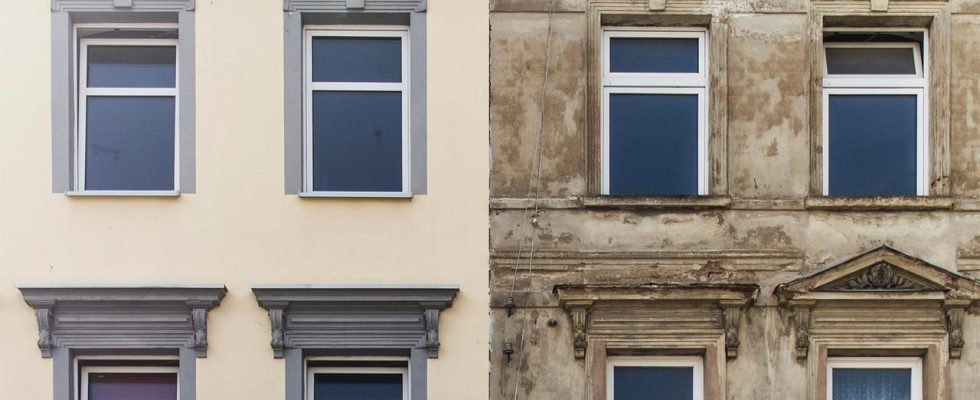If CO2 emissions are to continue to fall, many buildings in Germany will have to be renovated. So far, the costs have mainly been borne by tenants. BUND and the tenants’ association suggest changing that.
It is not yet clear whether the numbers will be confirmed. But so far it looks like Germany’s building stock will have emitted a little too much CO2 in 2023: 102 million tons instead of the legally required maximum of 101 million tons.
The environmental protection organization BUND and the German Tenants’ Association (DMB) criticize that climate protection in buildings is lagging behind. They are calling for an “immediate course correction”. And that means in particular: more government funding for energy-efficient building renovations.
“The target gap by 2030 is threatening to grow ever larger. It is not enough to simply change the energy supply,” says Antje von Broock, Managing Director at BUND.
Renovation is expensive for tenants
To date, renovations have been carried out too rarely and, secondly, the costs of renovations have generally fallen on the tenants. “One in three tenant households is already overburdened by their rental costs,” says Melanie Weber-Moritz, Federal Director of the DMB.
Theoretically, energy-efficient renovations should permanently reduce heating costs – and thus recoup the investment. “In practice, this primarily increases housing costs,” complains Weber-Moritz. Because landlords are allowed to pass on eight percent of the costs to the annual rent. This is exactly what should be changed, according to the DMB and BUND proposal.
The ifeu Institute study “Social climate protection in rental apartments” that they commissioned comes to the conclusion that a reduction in the possible levy from eight to three percent would make sense. In return, the landlords are allowed to keep all of the funding. In addition, the funding rates should be increased.
More funding for faster renovation
“The economic incentive for landlords to renovate energy efficiency has so far been relatively small,” says Peter Mellwig from the ifeu Institute. “So far, the subsidies have hardly been claimed by landlords.” This means: Funding pots are not exhausted and correspondingly few houses are renovated.
BUND and DMB also demand that the state should provide varying levels of support. “For an ambitious standard, the funding should be increased to 40 percent, and for the lower standard to 20 percent,” explains von Broock.
She expects this to give a boost to the renovation of existing buildings, especially in the apartment building segment, which has so far lagged behind. It is precisely there that it is possible to save a particularly large amount of CO2 – compared to single-family homes. “This means that if something is achieved here, many square meters of living space are immediately affected,” says von Broock.
Costs not yet known
Since heating costs are likely to rise in the future, urgent action must also be taken with regard to the social situation of tenants, according to the tenants’ association. “We have enormous pressure to act. The building sector has not achieved its climate protection goals for the fourth time in a row,” says Federal Director Weber-Moritz. “Doing nothing will have a particularly negative impact on low-income renters.”
However, the proposal from BUND and DMB has a catch: it has not been calculated. So no one can say how much taxpayers would have to pay for a program like the one proposed. “How much it costs depends very much on demand. In the end, it’s a question of prioritization as to whether I want to spend the money,” says study author Mellwig from the ifeu Institute.

